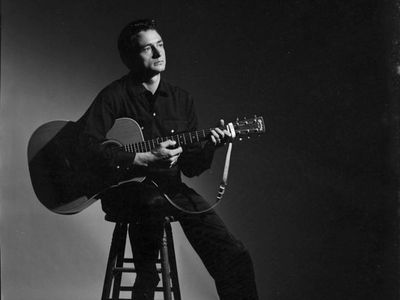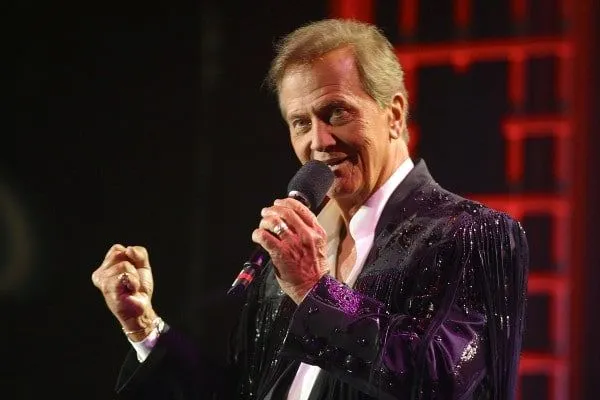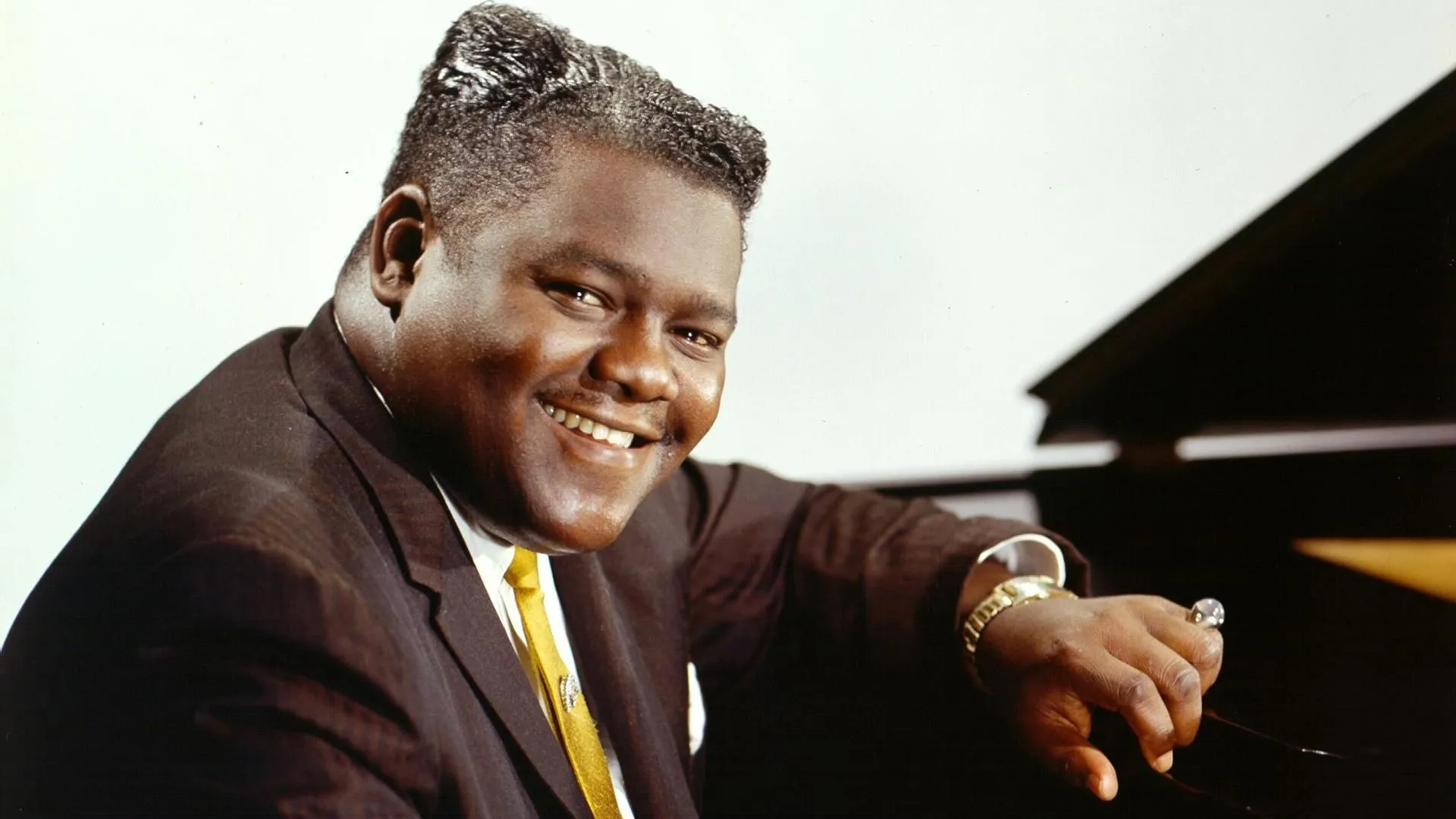Johnny Cash, the Country Legend
Sun Records. Actually, from a musicological point of view, only two associations are allowed with this term: Elvis and Johnny Cash. While The Pelvis mutated into a rock'n'roll idol but ultimately succumbed to his wealth, Cash survived his numerous unhealthy escapades and, despite his death in 2003, is undisputedly considered the king of country music.
It may sound almost unbelievable that Sun boss Sam Phillips initially rejected the young Johnny with his Tennessee Two (with guitarist Luther Perkins and bassist Marshall Grant) in 1955 because he introduced himself as a gospel singer. Too uncommercial. It was only when the initially offended Cash ditched the biblical lyrics and came up with the number “Hey Porter” that Phillips was enthusiastic. The song became the B-side of his first Sun single “Cry Cry Cry”, which promptly climbed the country charts.
Early Life of the Country Legend
Born on February 26, 1932 in Kingsland, Arkansas, Cash doesn't sound like Nashville, and even though his career coincides with the birth of rock 'n' roll, this category doesn't fit either. Although his rebellious attitude and the simple yet meaningful composition patterns resemble the attitudes of the emerging rock movement.
In 1957, Johnny was honored with the first Sun artist to release an LP: “Johnny Cash With His Hot And Blue Guitar”. At that time, the former truck driver Elvis was already a minor star. A certain June Carter was already singing in his band and, through Elvis, who idolized Johnny, she met her future husband. At the time, Cash is still married to Vivian Liberto, whom he marries in the mid-50s after his stint in the army in Landsberg, Germany.
In the early 60s, the singer falls out with Sun Records again over a planned gospel album and seizes the opportunity to change labels when media giant Columbia Records makes a lucrative offer. This is when his tragic, almost nine-year alcohol and drug career begins: to physically cope with over 300 performances a year, Johnny swallows amphetamines like other people take glucose. A liqueur is also always quickly at hand. In 1963, he leaves his family and moves to New York, where he gets into trouble with the law.
In addition to a few serious car accidents while intoxicated, which usually only cause the star minor scratches, Cash smuggles pills across the Mexican border in his guitar case and, on top of that, sets a medium-sized fire, which results in a sizable forest fire. It was only when he discovered the Bible and married June Carter, with whom he composed the global hit “Ring of Fire”, that Cash got back on the right track.
In this condition, the most successful phase of his career began at the end of the 60s. In 1968, he performed live in Folsom Prison; the recording became his most popular album, an endorsement that he was able to confirm the following year with “Live At Saint Quentin” (both records were reissued at the end of 2000 in a restored version with previously unreleased material). He also received a Grammy for the liner notes to Bob Dylan's “Nashville Skyline”.
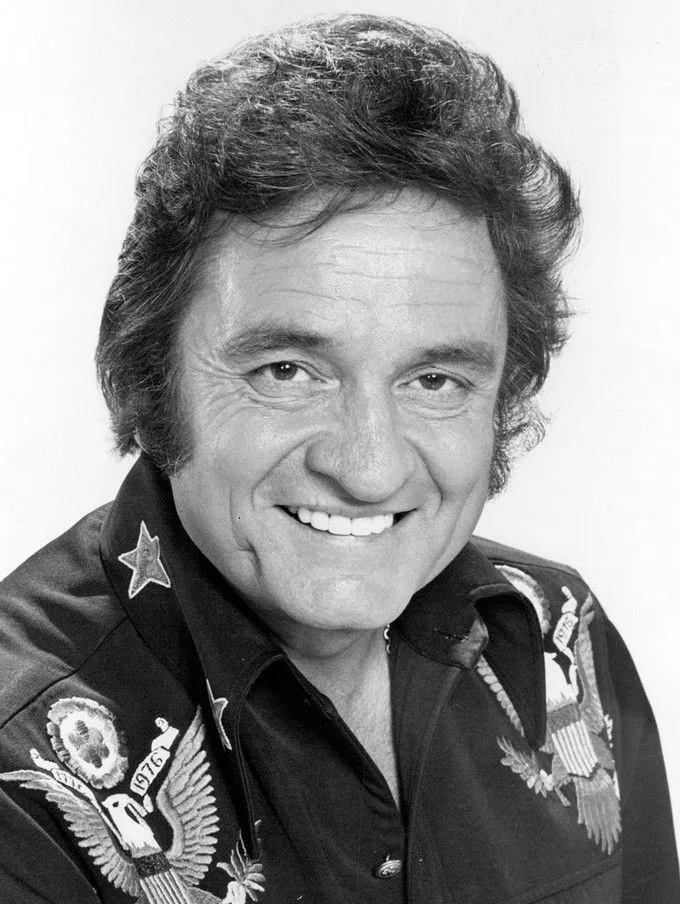
Johnny Cash, the TV-Host
From June 1969 to March 1971, he had his own television show on ABC, performed at the White House for President Richard Nixon despite his anti-government views (Vietnam War), and published his autobiography, which became a bestseller. But soon his star is rapidly declining - too rocky and rebellious for the Nashville world, too country-oriented for the rock scene, he falls into the category of aging stars who travel the world with their well-known hits and occasionally release a high-quality recording that is largely ignored by the general public.
In the 80s, he recorded some of the songs from Bruce Springsteen's “Nebraska” and played with the Highwaymen, a band that also included Kris Kristofferson, Willie Nelson and Waylon Jennings. It was not until 1993, when Cash sang the song “The Wanderer” on the U2 album “Zooropa” (to Bono's great delight) that his big moment arrived. Def Jam founder and Beastie Boys discoverer Rick Rubin heard the song and contacted the legend to record an album together. The '94 work, simply titled “American Recordings”, presents a Cash that no one had ever seen before: Freed from unnecessary country ballast, he murmurs his songs and those of Leonard Cohen, Tom Waits and Danzig, deep and dark to an acoustic guitar. Cash makes a video for the song “Delia's Gone” in which supermodel Kate Moss is shot twice.
The duo continued their success with “Unchained” after headlining the Glastonbury Festival in 1996. In Germany, Cash could be seen live for the last time on July 31, 1997 in Koblenz (!). In the summer of 2000, the 3CD retrospective “Love God Murder” was released. Although the singer has been suffering from Parkinson's disease since 1997, he manages to complete a third part of the series with Rick Rubin, which is released in October 2000 with the title “American III: Solitary Man” and represents something of a legacy. Due to Cash's frequent hospital visits, few expect the legend to work with Rubin again.
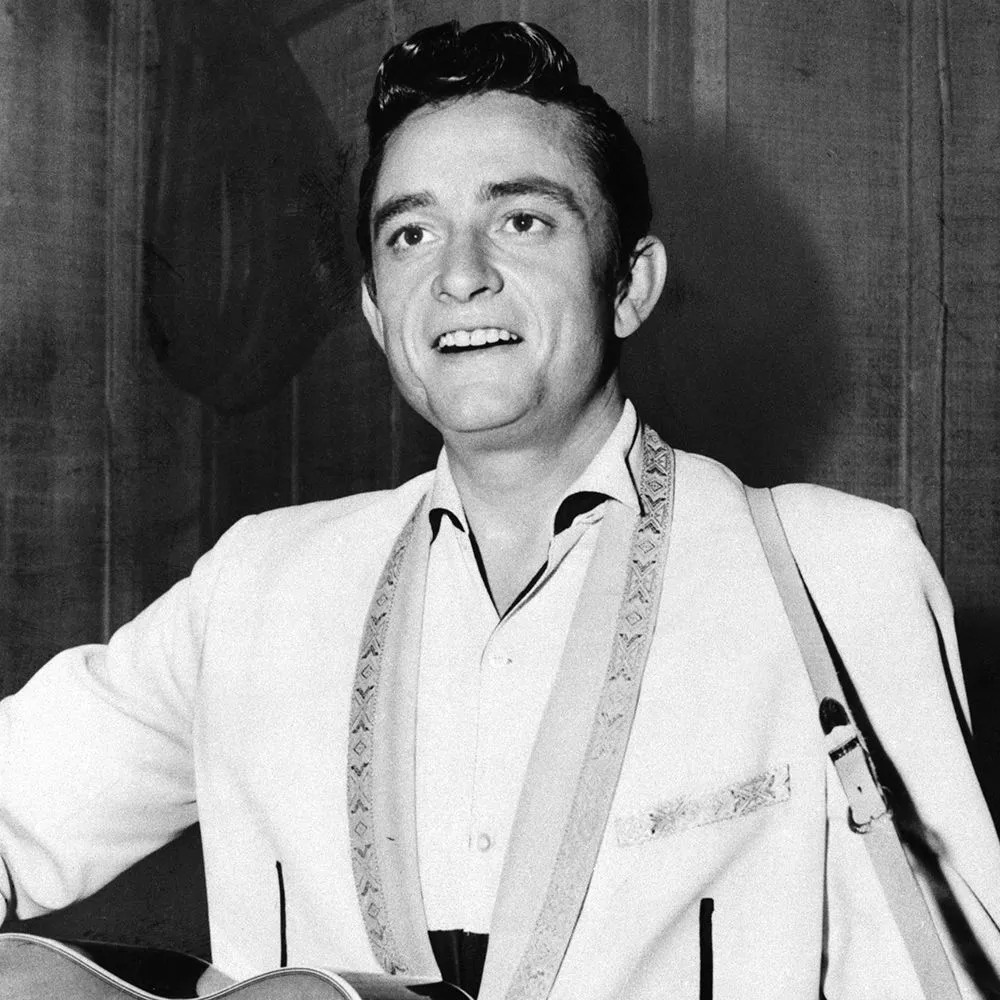
Role Model for Millions
In addition, Franz Dobler's Cash biography “Die seltsame und schöne Welt der Country-Musik” (The Strange and Beautiful World of Country Music) is being released. Dobler also compiled the tribute album “A Boy Named Sue - Johnny Cash Revisited,” on which German indie bands pay homage to the legend. Two tribute albums are also being released in the US, and a film adaptation of Cash's turbulent life is being planned, starring Joaquin Phoenix and Reese Witherspoon. The country singer suffered a heavy blow in 2003: on the evening of May 15, Johnny's wife June Carter Cash died at the age of 73 in Nashville's Baptist Hospital as a result of heart valve surgery.
Close associates of Cash report that the musician is willing to tackle another album project with Rubin despite the heavy loss. In August, however, he has to be hospitalized again in Nashville due to his diabetes. Two days after his release, Cash was about to travel to California to work with Rubin on new songs, but unexpectedly died quickly from the effects of the disease on September 12, 2003. Johnny Cash was 71 years old. At the end of the year, the 5-CD box set “Unearthed” will be released, which was planned during his lifetime. In addition to outtakes and unreleased songs from the Rubin era, it also includes a gospel album recorded by Cash in 1996, which has been his life's dream since he was introduced as a singer at Sun Records in 1955.
Johnny Cash leaves behind a body of work of enormous proportions, which even after his death still provides material for various releases. An extremely recommendable audio book, consisting of four CDs, will be available in late summer 2004. Narrated by actor Peter Lohmeyer and peppered with 36 songs, “Auf Kurs” tells the long story of the country legend with extreme meticulousness. In the summer of 2005, the 4-CD box set “The Legend” was released, once again providing an overview of his musical career up to 1994. The material is partly chronological, but mainly arranged by theme. CD 1 contains all chart hits from 1956 to 1979, and CD 2 contains the most important singles. On CD 3, Cash covers folk, blues and hillbilly standards, while CD 4 contains duets with Bob Dylan, Elvis Costello and his wife June Carter Cash, among others. The package is rounded off by seven unreleased songs and an elaborate booklet.
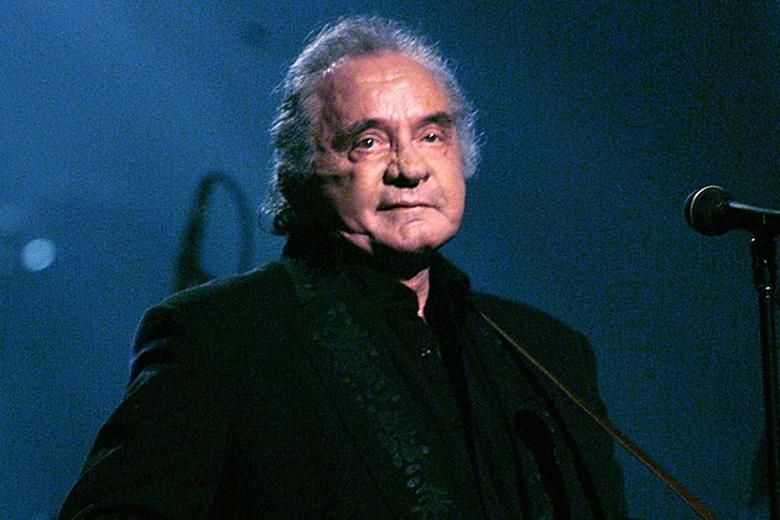
Turning his Life into a Musical
In 2006, the man in black received higher artistic honors. On Broadway in New York, Richard Maltby Jr., who directed Miss Saigon, among other productions, and William Meade are planning the Cash musical “Ring of Fire”, which will include 38 of his songs. The directors obtained Cash's consent years before his death. The piece is intended to follow in the tradition of so-called jukebox musicals such as “Mamma Mia” or “Rat Pack”. In September 2005, it will be tested in front of an audience, with the Broadway premiere scheduled for February at the Ethel Barrymore Theater. It has not yet been determined who will play Cash. A film starring Joaquin Phoenix is also in the works and will be released in February 2006. While “Walk The Line” concentrated on the early years, “Ring Of Fire” aims to tell Cash's story comprehensively.
But anyone who thought that the “Ring Of Fire - The Legend Of Johnny Cash” best-of CD, released in 2005, was the last posthumous recording of the great man, has made the calculation without the marketing of modern times. First, the double CD “Personal File” hit the shelves in May 2006, featuring archival material from the 70s and 80s. Then Rick Rubin posed as Sherlock Holmes and continued the cult-like “American Recordings” series.
With “American VI: Ain't No Grave,” Rubin closed the archive of his recordings in 2010. Then, in 2014, some Cash recordings from the 1980s emerged and were released under the title “Out Among The Stars.” This was the decade in which Cash was declared persona non grata for both the mainstream and the country scene. So it's no wonder that he tried to adapt his songs to the more modern needs of the country scene.
Apart from various live recordings, it took another ten years for new archive material to find its way to the public. “Songwriter” contains eleven songs from 1993 that Cash recorded shortly before Rubin gave him a new chapter in his career. A discovery that surprised even many fans. It will be difficult to prevent further releases of his estate, even though Rubin's closet has remained closed since 2010.
